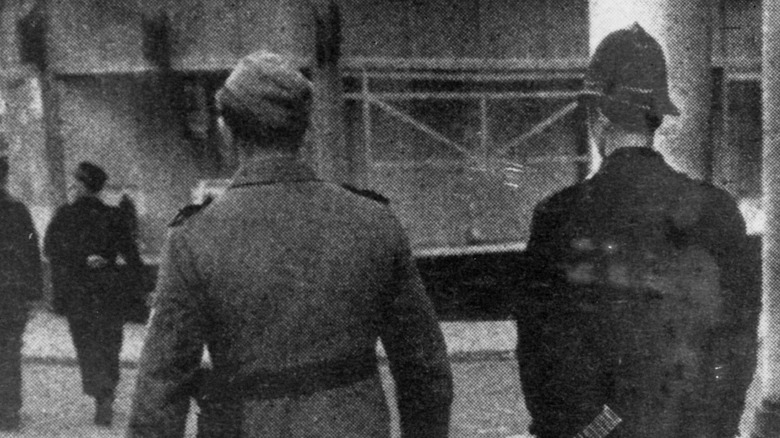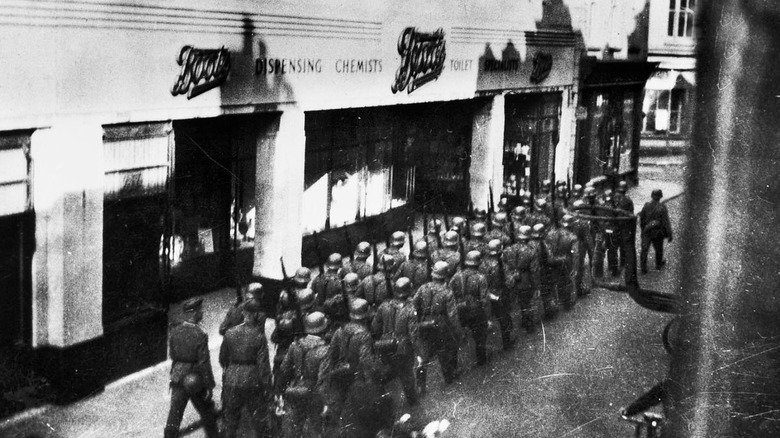The British Islands Once Occupied By Nazi Germany
Operation Sea Lion, the hypothetical invasion of the British Isles by Nazi Germany, has been the subject of debate and alternate history novels for decades. Many assume that before Germany involved itself in the quagmire that was its invasion of the Soviet Union, a joint amphibious and air assault could have been carried out against the island nation. In truth, this was never a practical plan, as much as the Germans may have wanted it to be – Britain's geography and overwhelming naval presence in the channel would have likely led to untold Axis casualties (via NPR).
Yet what few realize is in that in reality British territory was actually captured by Germany, leaving British civilians under German occupation for most of the war (via History Extra). The Channel Islands, a collection of five islands off the coast of France, have been ruled as British since 1066. Their culture is predominantly British, though in the case of Jersey, English is just one of their official languages, in addition to French and Jèrriais, a dialect of Norman. Many of the islanders fled before the invasion, but from 1940 to 1945 thousands were left to deal with the realities of occupation, where surreal sights like German soldiers interacting with British police (pictured above) were commonplace (via Historic UK).
D-Day did not mean liberation for the people of the Channel Islands
The German garrison amounted to over 20,000 troops, which quickly set about constructing fortifications on the islands to complement the "Atlantic Wall" defenses. Their relationship with the islanders was one of constant tension, as the latter's food, vehicles, and other resources were requisitioned by the occupiers as martial law was implemented (via Forces). Prison camps were set up with slave labor from abroad where hundreds died, while the Jewish minority of the islands was subjected to abuse with job loss and constant threats of deportation to concentration camps (via Cambridge).
In an environment where most of the young men had left to fight with the British army abroad, fraternization between local women and German soldiers became a mutually stigmatized yet common occurrence (via BBC). Women also played a role in the relatively minimal yet constant native resistance efforts (via Literary Hub). In 1944, Allied troops landed on the French coast to liberate Europe, yet the Channel Islands were deliberately bypassed. Like the island hopping approach used in the Pacific, the Allies chose to instead let the Germans wither away from starvation, sparing Allied soldiers but prolonging civilian suffering. Despite this, the Germans on the island were not out of the fight, and in 1945 launched a successful amphibious raid on the mainland before ultimately surrendering (via History Net).

